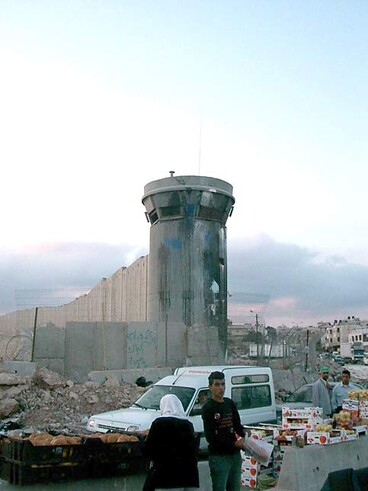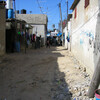
Did you say the Israelis are withdrawing?
Bethlehem 27 February 2005
Since the Sharm El Sheikh summit things have significantly improved in the Palestinian territories. The Army has stopped its incursions in Palestinian towns, Palestinian civilians are free to move, prisoners are about to be released and economic activity is slowly recovering… At least this is the information that most western media is conveying to its people. The situation on the ground is unfortunately completely different. The Separation Wall is being completed faster than ever, all the military check points are still in place, the Palestinian detainees are still under Israeli custody and daily life is still hell for all Palestinians. Read more about Did you say the Israelis are withdrawing?








